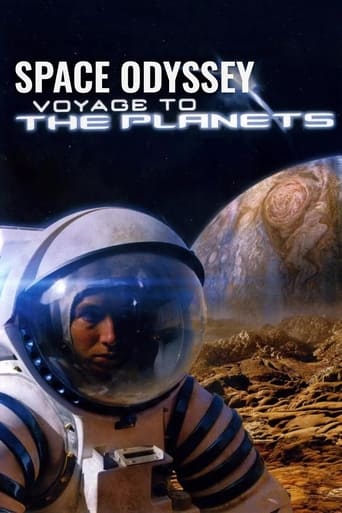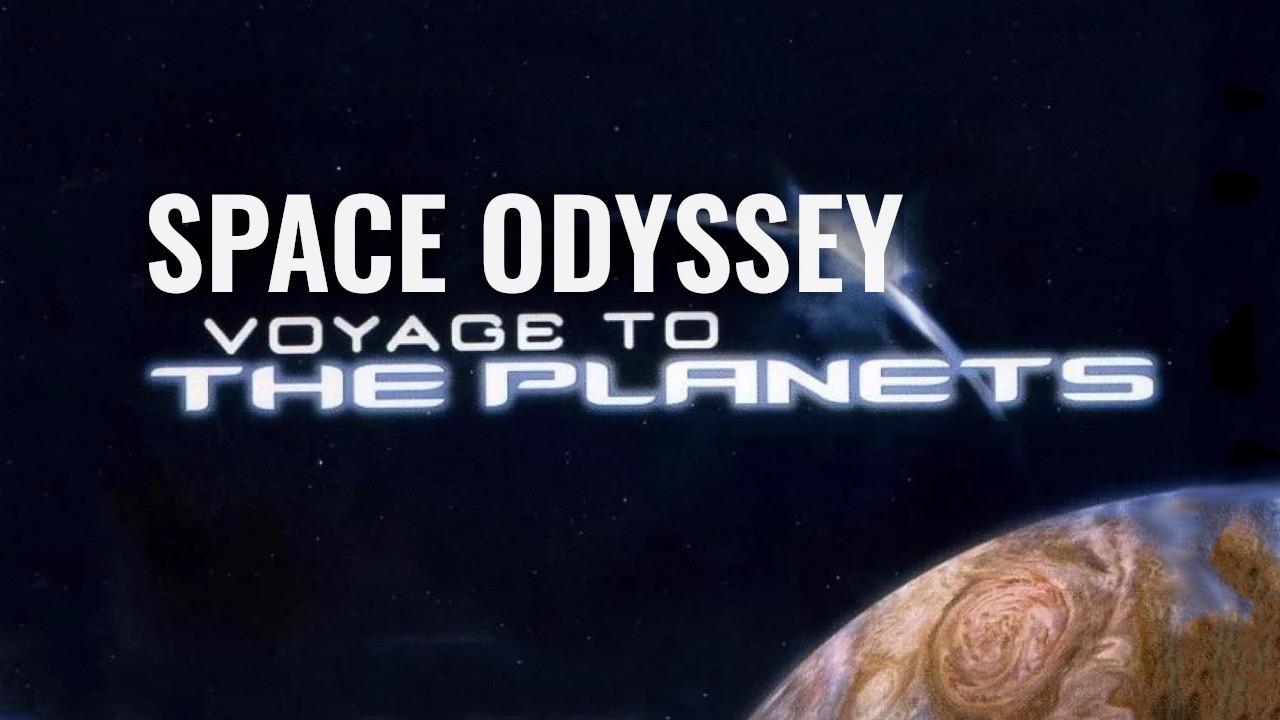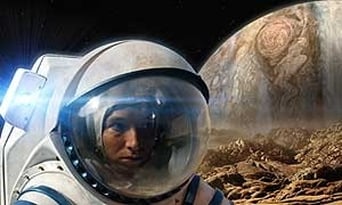tankace
Space Odyssey is, unfortunately, largely forgotten from the variety of documentaries whose were shown during the early 2000' and they try to use CGI to make the show more attractive to the public. The majority were nevertheless quite ugly to watch ,due to the technology of the time. To put it in simple words that CGI back then were quit expensive for a TV documentary budget. There is where this lost gem makes the difference, it doesn't try to show the space travel as epic as it is possible, rather realistic enough so the watcher to fill that the crew truly travels in our solar system. Although the effects here and there are a bit dated,they have aged well and the acting is pretty good to. So go and give it a watch ,it really deserves more love than it usually gets.
Audax67
My main criticism is quite simply that it isn't long enough or detailed enough. I would have loved to see more of everything: the building of the vessel, the engineering, the training, the first lift to orbit, preparations for departure, Venus Orbital Injection, everything. I would have liked to see more of the first leg, Venus to Earth, instead of zipping there like a n°10 corporation bus. In fact, I would have liked to see a series on the scale of Earth Story made of this, with a full hour dedicated to every planet and maybe another to the loop around the Sun. As it was, I was left hungry. On the other hand, I do understand budgets and viewers' attention-spans.Re the science: Let's be fair about the speed-of-light time-lag: they did mention at the beginning that there was a lag in conversations, but they let this evaporate once they reached the outer planets. Some kind of conversation had to be presented to the viewers, and we have to assume that the lag was edited out for the sake of palatability; so no complaints there. But zero for noisy spaceships. The only film in which spaceships make no noise was Kubrick's 2001, and even then he copped out by using the noise of the crew breathing in their helmets - which *was* pretty effective. I wish the makers of Space Odyssey had realized just how eerie the sight of vast rocket-motors blasting in absolute silence might be but alas, Pegasus lets out much the same roar as every other cardboard spaceship in every other cardboard SciFi film.But the rest of the science was excellent. No complaints there, in fact praise for bringing out the radiation problems as well as they did. I just hope that having done this film won't discourage the BBC from making a really detailed version, but I suppose that's not for next week or next year either...
lourdesfaberes
i was part of the cast of Space Odyssey, playing FIDO in mission control. i just want to say that none of us actors, specially those in mission control who had to react to a green screen most of the time, had any idea how amazing it would turn out to be. i knew it was going to be good, if only for the sheer camaraderie and professionalism that the production team at Impossible Pictures provided for everyone involved. but when we all saw it for the first time at the screening at the Curzon Mayfair, well, i for one felt very proud. I was so glad that none of us looked like we were in Star Trek. Joe Aherne, the screenwriter and director, is the most amazing man to work for. He pretty much gets a good team together and then just trusts them implicitly to freely do what they do best. I'm really lucky to have been part of this show. Who knew something this epic and complicated to understand would turn out to be so enticing to watch. and my god it's a beautiful universe out there.
d.tolfree
The subject of this film has always been of interest to me so I viewed it both for its scientific, visionary and entertainment value. Every time a film about space exploration is made, expectations rise as new image technology enables productions to be more realistic and precise. The production team succeeded in doing this to the point where, for someone less aware, the event could have actually been taking place. The landscapes on the planets, from the hot surfaces of Mercury to the frozen rocks on Pluto were just as I imagined them. Until recently we had to use our imaginations based often on artistic impressions gathered from visual astronomical data. But now that probes like the Pioneer and Explorer series have actually been close enough to take real pictures, then what we saw in this film I assume, is close to reality.I also was glad that Pegasis, the space vehicle, looked realistic and had a crew, it added some drama and again realism. They did not use silly-looking people dressed up in combat uniforms or looking like ex- army drop outs in the crew but members who could have easily been trained astronauts, carefully making sure that both gender and race were included. That is what a international crew would be.The space walk in Saturn's Rings and the release of the dead astronaut into them was extremely poignant and established the dangers of long term space travel. The hazardous landing on the Comet and the subsequent expelling of black ice from it as turned into the sun, nearly destroying the space vehicle, further demonstrated the dangers. One problem that the film did not deal with was the time delay in signal propagation from Earth control to the space vehicle, although being stated as being many hours it seemed that there was a direct link which is not possible over such vast distances. Earth took control over the space vehicle to move it so its shield blocked the bombardment from the Comet's tail when some members of the crew were injured during the bombardment, thus saving it from destruction but they could not have done that so quickly. This technical issue of transmission time always gives producers of space films a problem and although it did not spoil the film for me, it needs to be addressed if films are to be realistic.Finally and most importantly, films like this give us a vision of the future - one that is not so far away. It stimulates our imagination and invokes our quest for discovery. Most of the technology and knowledge to make such a journey is available. Reducing the costs and risks to an acceptable level is the challenge that confronts us. Earth is a home but not our prison, a point this film makes very well. Space exploration is there for everybody irrespective of nationality, religion, or culture and ultimately, maybe sooner than we think, we shall make the journey so vividly portrayed in this BBC production.


 AD
AD



